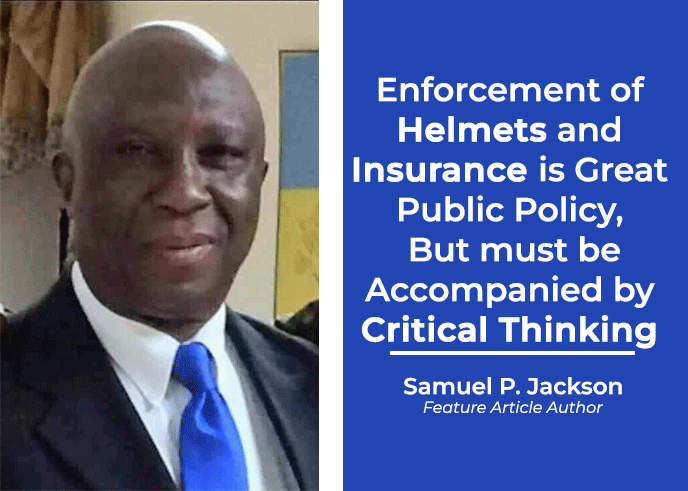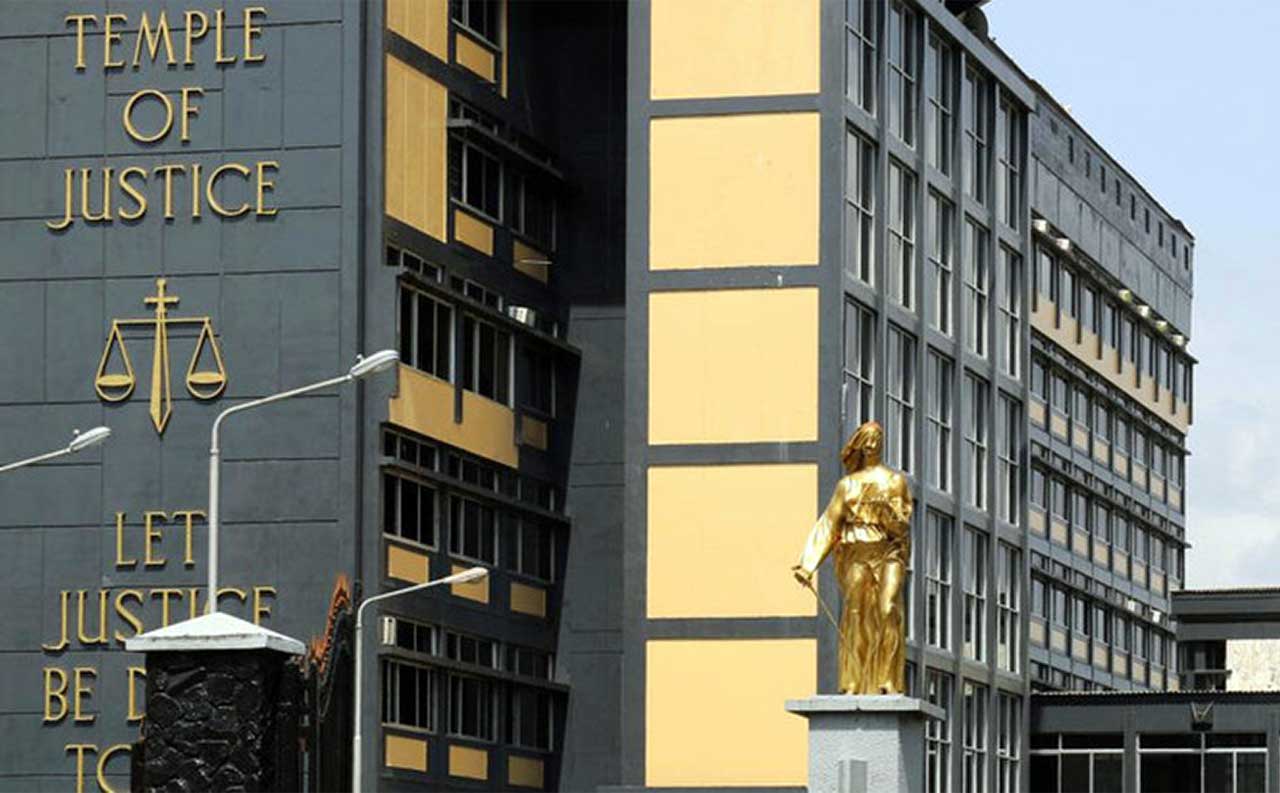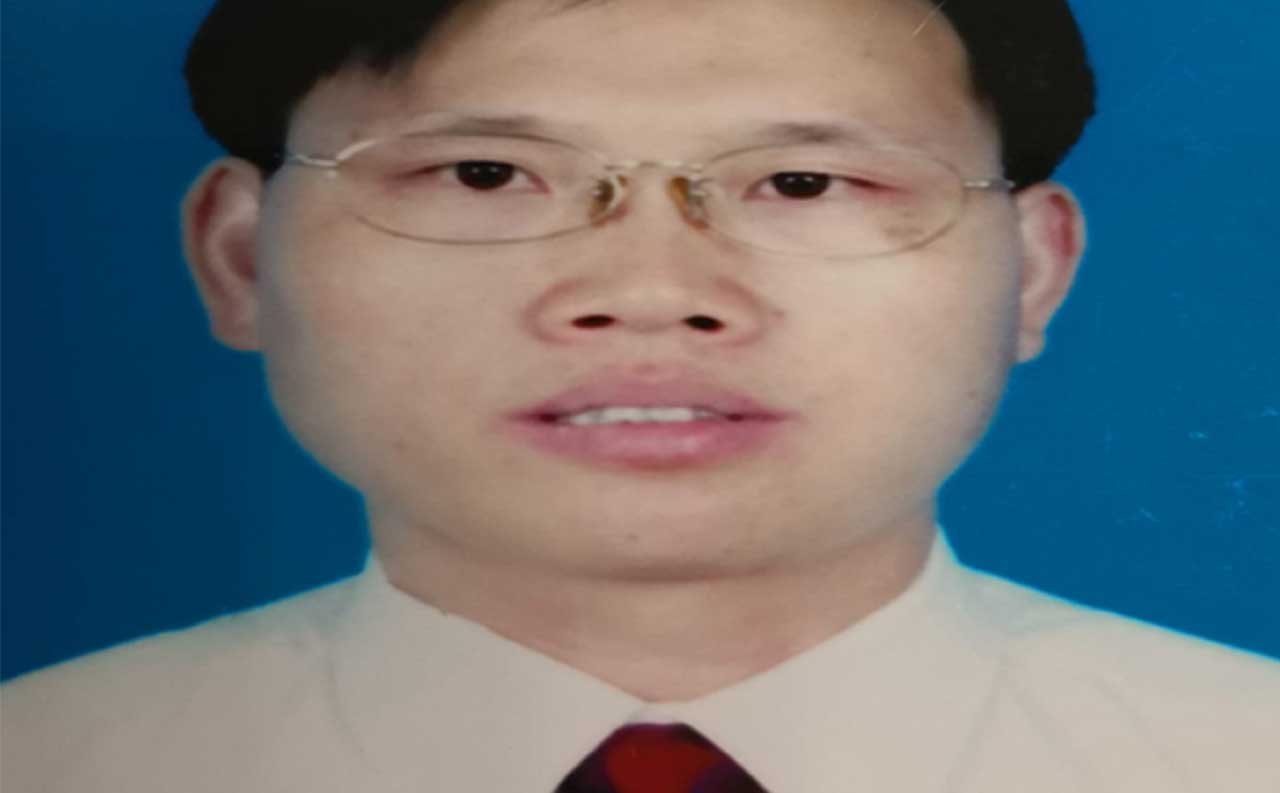The enforcement of helmets and insurance on motorcycles is good for public safety and is a desirable public policy. I support the enforcement contrary to my political adversaries who view everything with partisan lenses. Protecting public safety is the responsibility of all citizens. However, public policies to protect people from themselves and others cannot be enforced without critical thinking. This is where my views diverge from the emotional miscreants who think enforcing helmets and insurance is a right of historical wrongs from the Weah Administration. That’s the Achilles heel of the current enforcement. It is not based on social equity.
According to a @Motorcycle Union President there are over 350,000 motorcyclists in Liberia. If that figure is correct it would mean the Pehn Pehn industry is the second largest in the country next to agriculture. The industry serves a vital function as the primary means of transportation for most of the population. Any public policy that seeks to impose regulations on the industry must be done holistically to avoid inconsistency and incoherence. The enforcement that began on the streets of Monrovia was a well-meaning effort by the LNP and we can all say bravo to the men and women in blue. But the enforcement was disruptive, caused bedlam and public anguish. Ten minute distances through city streets turned to hours. Many people walked miles to their destinations and the city’s economy was disrupted.
The central goal of enforcement is noble but not enough thought went into it. You cannot blame the LNP. Liberian officials in the transport sector fumbled badly. For starters there was no inventory done to determine the number of helmets in country. My critics say each motorcycle is sold with a helmet. Perhaps true but most motorcycles are bought used as there is a huge secondary market of used bikes in the country that are not sold with helmets. So that throws out their logic. In fact illogical! Secondly who is responsible to provide helmets to passengers? The Ma Wattas. And their young children. There is no one size fits all helmet. How about the public health risks of sharing helmets from diseases and lice? Other medical risks?
Insurance. Insuring the risks in the motorcycle industry is not as simple as it appears. Liberian insurance companies do not have the capital to fund claims from the high degree of accidents, injuries and fatalities in the industry. The premiums might be too high if proper underwriting is done. That leads us to start thinking of pooled insurance with the support of the state. High risk drivers are placed into a pooled fund in some states in the U.S. such as the New Jersy fund that insured those with suspended licenses or other categories.
What is needed in the long run is solution to our mass transit problem. But for now a coordinated approach that is based on practicality and the public immediate interests must be considered. The problem does not require a knee jerk reaction but critical thinking. And that’s why the enforcement was disruptive and it could ultimately fail if we do not recalibrate. Public safety officials, transport economists, motorcycle unions and other stakeholders need to do more consultation to create a workable and sustainable solution with minimal disruption. And so it goes.
About the author
Samuel P. Jackson is an Urban Economist with an MSc in Cities (Sustainable Cities and Communities) from the London School of Economics and Political Science (LSE). In his previous life he worked as an investment banker on Wall Street USA with many firms including Chase Manhattan Bank, Credit Suisse and Drexel Burnham Lambert.



